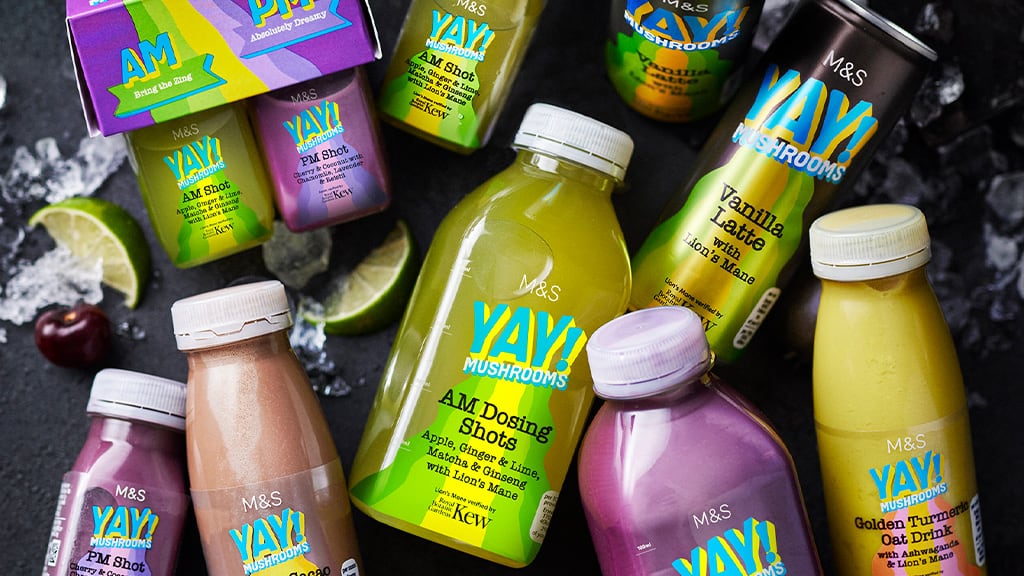Europeans are beginning to shift away from eggs and turn their attentions to alternatives, potentially yeast-based proteins, a new survey from food tech firm Revyve suggests.
French, German and British consumers' feelings towards eggs were gathered through AI-moderated individual interviews to help understand their perceptions of egg replacements.
All three groups considered eggs as an “essential, functional and nutritional” part of their diets and foods. However, the trio of groups also agreed there was a role for animal-free alternatives to eggs.
Eggs were considered to be an important source of protein and as an effective binder in food and drink processing. French consumers held a deeper appreciation of eggs and their use in cooking, including the ingredient’s ability to add texture, softness and fluffiness.
French consumers also shared concerns about the allergenic properties of eggs and associated dietary restrictions.
What egg replacers are on the market?
Britons and Germans, however, raised concerns about eggs' perceived negative impact on cholesterol, when consumed in excess. Their non-vegan status was also raised.
“Around the world, we can see consumer choices increasingly shifting towards flexitarianism,” says Revyve CCO Jordania Valentim.
Previous market studies have ringfenced the French, German and British markets as markets ripe for egg replacement opportunities.
Vegan egg replacers on the market
There are dozens of plant-based egg replacers currently on the market, with manufacturers also using traditional, new and emerging techniques to produce animal-free products for supermarkets.
What plant-based egg replacers are already on the market?
- Free and Easy – made from potato flour, Tapioca, flour, cream of tartar, xanthan gum and methycellulose
- Oggs – made from 100% aquafaba (water and chickpea extract)
- Orgran No Egg – made from potato starch, Tapioca starch, calcium carbonate raising agent, acidity regultor, stabiliser and methylcellulose
- Bob's Red Mill – made from potato starch, Tapioca flour, baking soda, psyllium husk fiber
- Supergood – made from 100% aquafaba (water and chickpea extract)
- Crackd – made from water, pea protein (3%), corn oil, thickener (methyl cellulose), pea starch, gelling agent (gellan gum), flavourings, firming agent (calcium lactate), dried inactive yeast, acid (lactic acid), black salt, acidity regulator (potassium bitartrate), colour (beta carotene), stabilisers (calcium carbonate, guar gum, cellulose gum), vitamins (D & B12), dextrose. No artificial colours or flavourings
“This survey was designed not only to assess awareness and openness among Europeans to yeast proteins as a viable alternative to animal protein,“ continues Valentim. “But also to understand what drives various populations when it comes to choosing clean label, more sustainable protein options.”
Yeast proteins can be highly nutritious, while behaving in the same way and exhibiting the same or similar properties of eggs, making them highly versatile.
Egg replacers have been used across a variety of sweet and savoury food applications, such as sauces, cheese hybrids, baked products and snacks.
The production of yeast proteins can also bring waste products – or ingredients that might go into animal feed – back into the food chain for human consumption.
Concerns around egg alternatives
However, concerns have been raised around the negative implications of yeast proteins as egg replacers. Such complaints centred around sensory problems, with consumers polled by Revyve specifying egg replacers “should not alter traditional food flavours”.
The survey also helped to define three types of consumers yeast proteins as egg alternatives could be aimed towards, according to Revyve CGO Corjan van den Berg.
“The French consumer treasures the dining experience, and demands dishes be crafted from fresh, natural ingredients,” says van den Berg.
“The modern UK consumer seeks convenience to meet its fast-paced lifestyle, while prioritising ethically sourced plant-based options.”
German consumers want a product that is practical, hearty, sustainably sourced and nutritionally balanced.
“Understanding the cultural nuances that influence consumer choices is key to tailoring our products with precision to effectively meet their individual needs,” says van den Berg.





